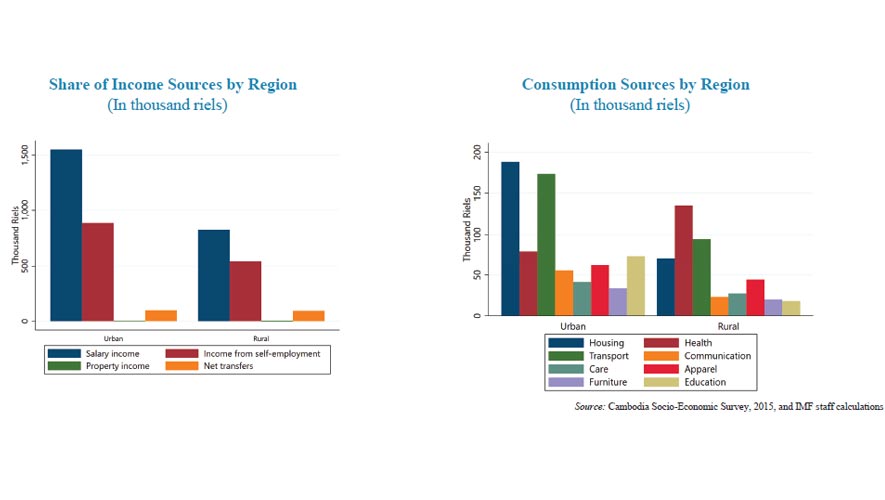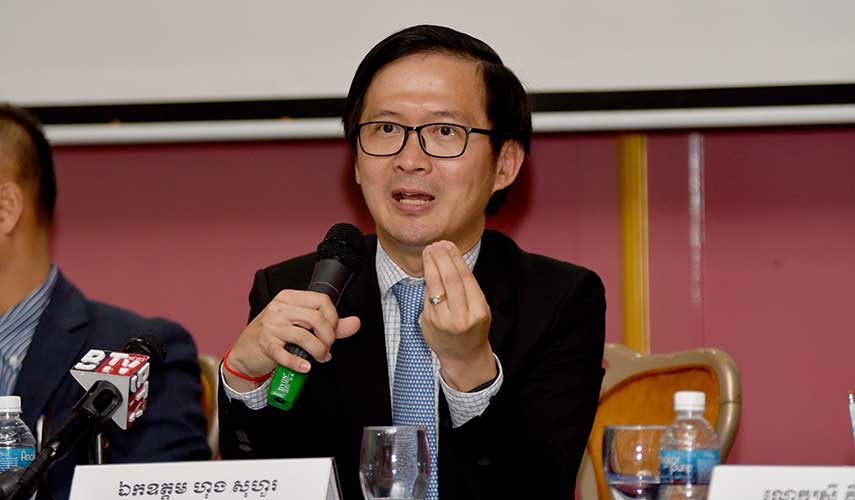Are pawnshops here for the long-run as financial institutions continue to expand in a highly-indebted society?
For the latest Cambodian Business news, visit Khmer Times Business
Despite Cambodia’s multi-tiered borrowing sector, pawnshops seem popular among low to middle income locals who seek quick and easy loans.
Often eliciting unsavoury views, the money-lending segment hosts up to 552 registered businesses nationwide since the start of licence issuance in 2009.
“When we talk about pawnshops, most people say that it is the market where pawnbrokers accept property, assets, and low-end products gained through illegal activities,” says Keo Nimet, strategic adviser for Cash-U-Up Co Ltd, a local pawn shop franchise.
Cash-U-UP, a Singapore-
Cambodia joint venture, is the first pawnshop to be licensed by the Economy Ministry. The chain has 15 branches and is expected to increase by another five by the end of the year.
Nimet dispels negative talk about the business by saying that pawnshops play a role of assisting small businesses or people with urgent or instant cash.
More so, when customers are not eligible for loans from commercial banks and microfinance institutions (MFIs) because they lack collateral, which makes loan approval tedious.
“If they need urgent cash, they can put up movable assets such as cars, motorcycles, jewellery and electronic items as collateral to obtain instant cash. We offer loans starting from $3,000 to $10,000,” he says.
He adds that it is common knowledge that customers prefer to go to pawnshops for short-term loans instead of banks and MFIs because the interest rate offered by banks are not appealing.
“Our rates range around 1.8 percent to 3.5 percent without the administrative service charge,” he adds.
Reducing exposure to high risk
The lack of supervision by the authorities is a matter of grave concern as consumers are exposed to higher risk of debt, and even harassment.
But Say Sony, senior vice president and chief marketing manager of Prasac says pawn shops would not cause any problem if they practise good collection methods. It is good to have professional pawnshops as it offers more options to the clients, he adds.
Economy and Finance Ministry’s real estate business and pawnshop department director Nong Piseth says the pawn shops are well-managed and have no conflict so far.
“We carefully check before licenses are issued, and we monitor their daily operation. Pawnshops actually contribute to the economy,” he adds.
According to the law, pawnbrokers can offer a maximum loan of $5,000 for land while movable assets can fetch up to 20 percent of the total asset price.
The interest rate is agreed between both parties. Sear Rithy, chairman of World Bridge Group, and president of Cambodia Association of Pawnbrokers and Transfer of Title for Securing Business, says pawnshops can approve loans within two hours.
“If customers urgently need working capital for business, pawnbrokers are the answer,” Rithy adds.
He notes that pawnshops abide by lending regulations because they are licensed by the government.
“We have to follow the regulation, if not we cannot go forward,” Rithy says.
No competition, low default rate
Cash-U-Up’s Nimet says pawnshop do not compete with MFIs and banks which focus on big loans and real estate as collaterals whereas pawnshops offer short-term small loans, backed by motorcycles or cars.
“Our market share is relatively small, and we neither replace nor compete with the larger institutions,” he adds.
Nimet says the loan default rate for his pawnshop chain is less than one percent compared to the banking sector’s three percent.
He says that the default rate does not represent bad loans, only that customers pay late.
“Our experts assess the applicant’s asset or property that is being put up as collateral, their job and the purpose of the loan before approving the application. This is to build trust among customers,” Nimet adds.




